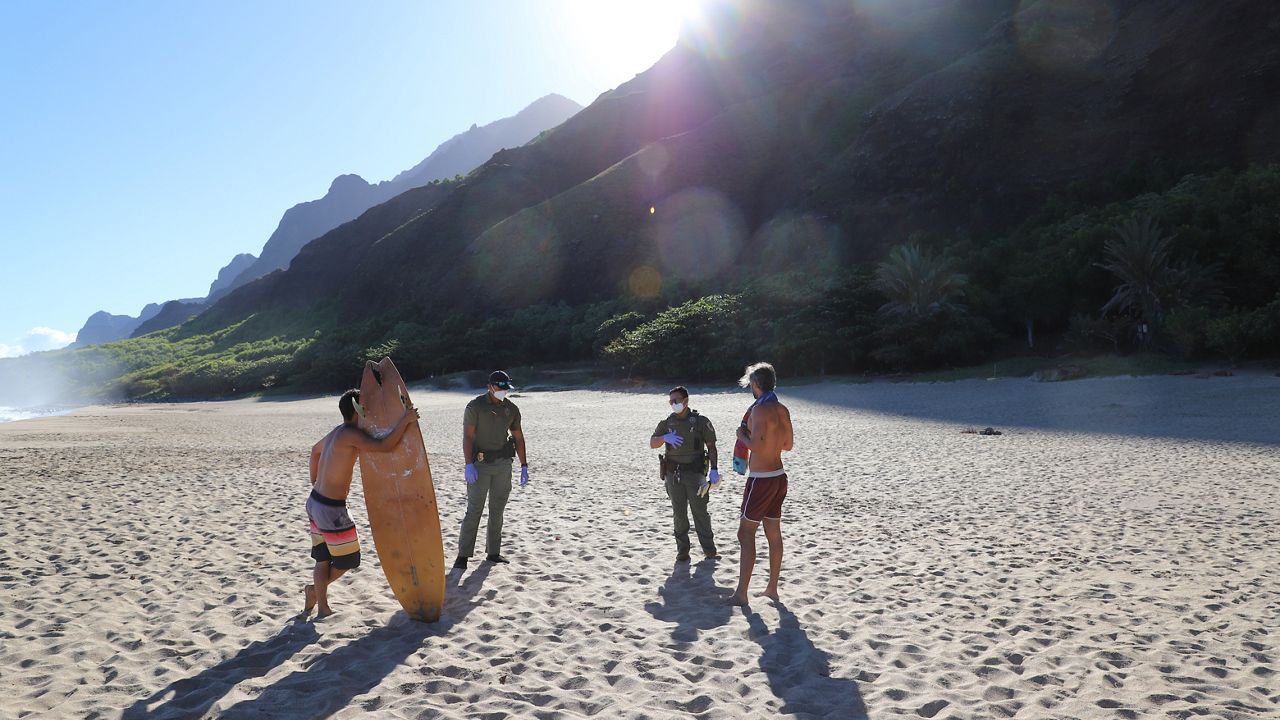The DLNR Division of State Parks announced Friday the entire Kalalau Trail would be closed at least until Sept. 19 after 37 hikers were confirmed to have norovirus.
On Tuesday, the park was closed starting at Hanakapiai Valley in the Nāpali Coast State Wilderness Park. Now, the closure extends from the trailhead to Honopu, where the trail ends.
Ha‘ena State Park and Kē‘ē Beach will remain open with enhanced cleaning and disinfection of the comfort stations.
The highly contagious virus causes severe nausea, vomiting and diarrhea. At least one hiker with the virus was airlifted out of Kalalau Valley.
DLNR confirmed at least 37 people hiking and camping along the trail have norovirus, but they estimate the actual number of infected people is higher. The virus was detected in people who did not directly interact with each other.
On Friday, a state Department of Health team went to Kalalau to collect water, soil, and environmental swabs to assess the continued risk of transmission.
DSP crews are also disinfecting comfort stations along the trail.
“We swept the floor and bleached the whole bathroom, floors, railings, toilets, everything. Waited at least 7 to 10 minutes, cleaned everything and did it again and then we wiped everything down with a disinfectant,” said Derrick Louis of DSP.
On Wednesday and Thursday, officers from the DLNR Division of Conservation and Resources Enforcement flew into the remote valley to inform campers of the closure. They plan to go again this weekend to tell any remaining people to leave. Law enforcement will be at the trailhead 24/7 to prevent backpackers from entering the trail.
However, DLNR acknowledged in a news release that the valley has a history of people living in hard-to-reach areas, making them undetectable.
During the closure, officers may cite or arrest people in the valley.
Norovirus has affected at least three other popular trails in the U.S. in recent years. Notably, in June, dozens of people visiting Havasu Falls in Arizona fell ill from norovirus and were flown out for medical treatment. The largest outbreak included at least 222 rafters and backpackers in the Grand Canyon National Park in 2022. Also, in 2022 and again in April, hikers on the Pacific Coast Trail reported getting sick.



